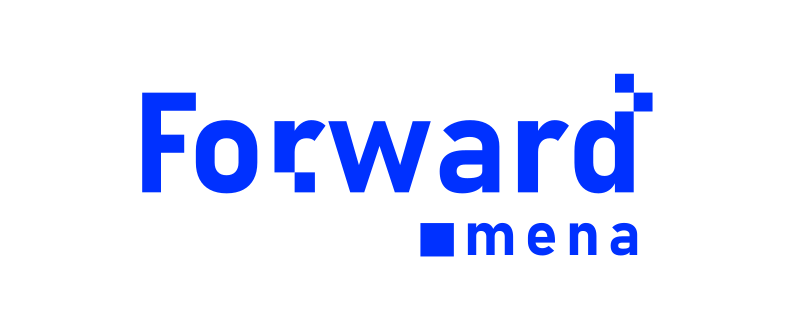ABOUT OnRamp ACADEMY
OnRamp Academy is a collaboration between LIFE, Speedlane and Forward Mena to equip individuals residing in Lebanon with the necessarily skills needed in the current job market.
Why OnRamp Academy
Certification Training Programs
Market relevant certificates upon course completion to enhance your resume and your employment potential
Market Relevant Curriculum
Courses designed to enhance the skills needed for the current most in demand jobs
Expert Trainers
Highly qualified and experienced professionals delivering industry relevant knowledge
Employment Support
Support to secure local or international jobs after graduation
ONRAMP ACADEMY PROGRAMS
Course Description
This is an advanced course to fast-track software engineers towards senior roles in cutting-edge, local and global digital agencies.
The course will be given online on Mondays, Wednesdays and Fridays from 6 to 7:30 pm local Lebanon time for the period of 12 weeks. In addition, soft skills training will take place on Saturdays for 5 days (full day workshop). The sessions will be live remote training sessions except for the soft skills training which will require physical presence at Beirut Digital District.
Course Objectives
By the end of this course, students will be able to:
Demonstrate improved communication and interpersonal skills.
Understand the inner workings of databases and their best practices.
Develop advanced and optimized APIs.
Develop advanced and optimized web applications.
Understand cybersecurity and writing secure applications.
Use Git & GitHub for version control and streamlined development cycle processes.
Understand testing methodologies and quality assurance best practices.
Understand the architecture of modern software and the 101 of cloud computing.
Understand the Agile methodology and its benefits.
Course Prerequisites
Lebanese.
Minimum age 21.
Strong foundation in software engineering, at least 2 years of professional experience. Exceptions can be made on a case-by-case basis; you can still apply if you have a good understanding of fundamental software engineering principles.
Familiarity with at least one programming language, database management system and styling techniques.
Proficiency in English is a must.
Participants are expected to demonstrate a high level of commitment, which includes full availability to attend all online and face-to-face sessions, actively engage in additional work such as exercises and assignments, and dedicate sufficient time to develop a comprehensive end-of-course project.
Applicants must sit for a comprehensive entrance assessment to evaluate their skills and aptitude, ensuring that our program aligns well with their skills and career objectives. This includes an interview, a time-limited asynchronous coding task, and, in certain cases, a brief real-time coding challenge.
Please be advised that we reserve the right to terminate the training of any participant who does not demonstrate a serious commitment to the program (e.g., lack of attendance or interest), engages in inappropriate behavior, or violates any of our policies.

A fullstack software engineer and Head of Engineering at Speedlane, Alexi began his professional
journey in 2009 after graduating from Politechnika Łódzka in Poland. Passionate about continuous
learning, he has experience in leadership, management and a wide range of technologies including
API development, modern JavaScript stack, TypeScript, React, Databases, Java, PHP, WordPress,
cloud computing, and mobile app development. Alexi has worked with US based startups and large
enterprises across various sectors, such as banking, healthcare, news agencies, and insurance.

Maroun Melhem
A Lead Software Engineer with more than a decade of experience in the tech industry. Over
the years, he has worked on impactful projects for MIT Technology Review, the MTA, Outfront
Media, and many more.
Leading teams of engineers, he has spearheaded projects that span multiple technologies and
frameworks, always with an eye for performance, scalability, and innovation. His roles have
also included project planning and close collaboration with client stakeholders.
Curriculum
Documentation & Source code Excellence
Task Ownership and Accountability
Conducting effective peer reviews
Advanced Coaching Techniques
Positive Workplace Interaction
Introduction to Databases
Types of Databases
Database Design
SQL and Querying
Performance and Optimization
Data Integrity and Transactions
Database Security
ES6 and NodeJS Fundamentals
RESTful APIs and Authentication
Advanced Backend Techniques (Queuing and Messaging, Websockets)
Logging, Monitoring and Debugging
GraphQL (GraphQL Integration and feature, PostGraphile)
Small Intro to React
Advanced React Hooks
Memoization/Avoid Useless Re-rendering
Lazy Loading
Caching
Performance Optimization
Error Handling/Logging/Monitoring/Error Boundary
State Management Technologies
CSS Variables
Optimize CSS Selectors
SCSS Part I (Variables, Nesting, Partials, Imports, …)
SCSS Part II (Mixins, Functions, Operations, Conditionals, Loops)
Quick Recap of Git Basics
Advanced Branching and Merging
Refining Commit Techniques
Collaborative Workflows in GitHub
Security and Compliance
Real-World Application and Case Studies
Introduction to Quality Assurance and Testing
Familiarity with Cloud Tools and Services
Infrastructure as Code (Terraform, Pulumi, etc.)
Auto-Scalability
Serverless Computing
Identity and Access Management
Introduction to Cloud Tools (CloudFront, DynamoDB, etc.)
Phases of the Software Development Life Cycle – SDLC – (Requirements gathering, Design, Implementation, Testing, Maintenance)
Introduction to Agile methodology (principles and values)
Scrum framework
Roles in Scrum (Product Owner, Scrum Master, Development Team)
Roles in a Digital Agency: Project Manager, Designer, Developer, Quality Assurance
Agile ceremonies (Sprint Planning, Daily Stand-ups, Sprint Review, Sprint Retrospective)
Agile project management tools (Jira, Trello, Asana, GitHub etc…)
Transforming requirements (Functional, Non-functional, Business) into tasks (User Stories, Use Cases)
Mindset and Collaboration
Time Management
Communication (Part 1)
Communication (Part 2)
Trainees

Course Infographics Insights









